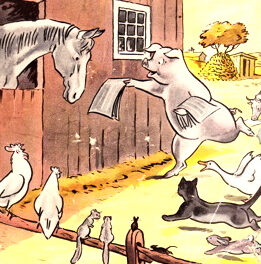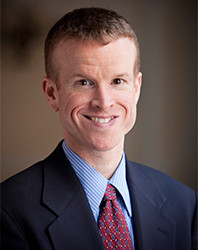California voters legalized marijuana for medical use on November 5, 1996. Bill Clinton was re-elected as President that same day. California’s Republican attorney general, who had led the opposition to Prop 215, flew to Washington, DC, and urged federal officials to prevent the new law from being implemented. Clinton didn’t authorize an armed crackdown, but he did set in motion a civil suit to close down Dennis Peron’s San Francisco Cannabis Buyer’s Club and five other Bay Area dispensaries. It was a classic example of liberal “triangulation.”
If Bill Clinton was a democrat, he’d have said, “The voters of California have sent a message by ballot initiative: they want to allow the medical use of marijuana. My administration opposed this initiative and we’re very concerned about its impact on public health, so the federal government will be watching very closely and we will shut down the state program immediately if we see an adverse impact on public health.”
Then, when no adverse impact ensued, the Democrats could have taken credit for letting medical marijuana happen. Al Gore would not have lost in 2000 if the Dems had been sensible on the marijuana issue. (Gore himself had been a heavy user and he knew that marijuana was medically useful. According to Katherine Seelye of the New York Times, while on the campaign trail Gore was pressured into echoing the Clinton Administration line on medical mj: “More research is needed.”)
When it came to light that Bill Clinton had been taking advantage of an intern named Monica Lewinsky, the fiercest Drug Warriors in Congress led the drive for impeachment. Rep. Bob Barr of Georgia had effectively denied the people of Washington, DC, the right to legalize the herb for medical use in 1998 when he introduced a measure denying official recognition of the 69-31-pro medical-marijuana vote in the District. Bill McCollum of Florida was pushing the development of chemical poisons that would eradicate cannabis and coca from the face of the earth. .
It’s worth noting how many of the men hounding the Kinkster-in-Chief would be exposed as kinksters themselves: Livingston, Dennis Hastert, Bill Bennett, Lindsey Graham, Kenneth Starr… Kinksters all!
Here’s a topical ballad (once a year, anyway) with lead licks by Camilo Landau. The Garage Band graphics may a little out of sync. Here are the the lyrics sans graphics.
Relevant background:
In August, 1998, with Washingtonians about to vote on Initiative 59, which would have legalized the medical use of marijuana, Rep. Bob Barr of Georgia introduced an amendment to the 1999 DC budget to prohibit the certification of the election results. “None of the funds contained in this act may be used to conduct any ballot initiative which seeks to legalize or otherwise reduce penalties associated with the possession, use, or distribution of any schedule I substance under the Controlled Substance Act, or any tetrahydrocannabinols derivative.” Sic, sick, sic.
The ACLU challenged the Barr amendment in federal court, and The DC Board of Elections and Ethics joined the suit as a plaintiff, arguing that Congress would be violating the First Amendment rights of DC residents. The Clinton Justice Department asked US District Judge Richard Roberts to dismiss the ACLU suit. When it went to a hearing, DOJ argued that Congress has the legal authority to not certify legislation in DC. But in typical “I didn’t inhale” fashion, they raised no objection to the vote count being released!
“That’s basically turning an election into a public opinion poll,” observed Wayne Turner, the AIDS activist who’d organized the Initiative 59 campaign. “This is about the right of the people of the District of Columbia to have their votes counted and to have them count. This is about democracy held hostage.” The voided vote was a first in U.S. history.
At the time Rep. Bob Barr was among the moralistic hypocrities clamoring for Bill Clinton’s impeachment. But the two were united in the effort to deny Washingtonians’ access to medical marijuana.
After Barr left Congress, Rob Kampia of the Marijuana Policy Project promptly hired him as a lobbyist at $10,000/month. —Fred Gardner





